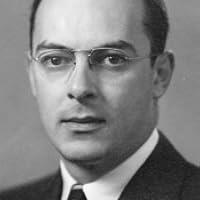
John Bardeen
关于作者
John Bardeen was a prominent American physicist, renowned for his groundbreaking contributions to the field of electrical engineering and solid-state physics. He is best known as one of the co-inventors of the transistor, a pivotal development that revolutionized electronics and laid the foundation for modern computing. Bardeen's work extended beyond the transistor; he also made significant advancements in the theory of superconductivity, which earned him the Nobel Prize in Physics twice, making him the only person to achieve this honor in the field. His first Nobel Prize came in 1956, alongside William Shockley and Walter Brattain, and his second in 1972 with Leon N. Cooper and Robert Schrieffer for the BCS theory of superconductivity.
Bardeen's influence in the scientific community was profound, as he mentored numerous students and collaborated with notable scientists throughout his career. His curiosity and commitment to research fostered a generation of physicists who continued to advance the field. Bardeen's legacy lives on not only through his inventions but also through the impact he had on the scientific method and education in physics. His work continues to inspire scientists and engineers worldwide, solidifying his place as a key figure in the history of technology and innovation.